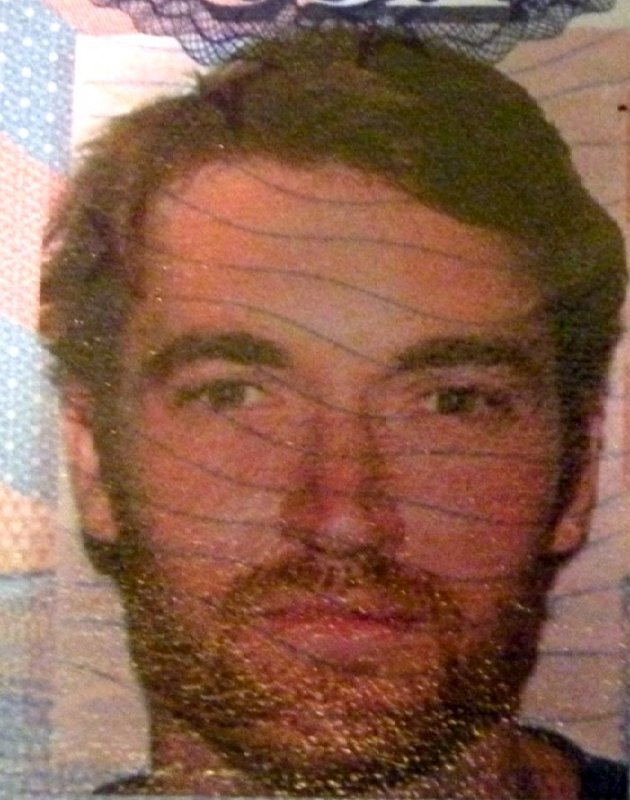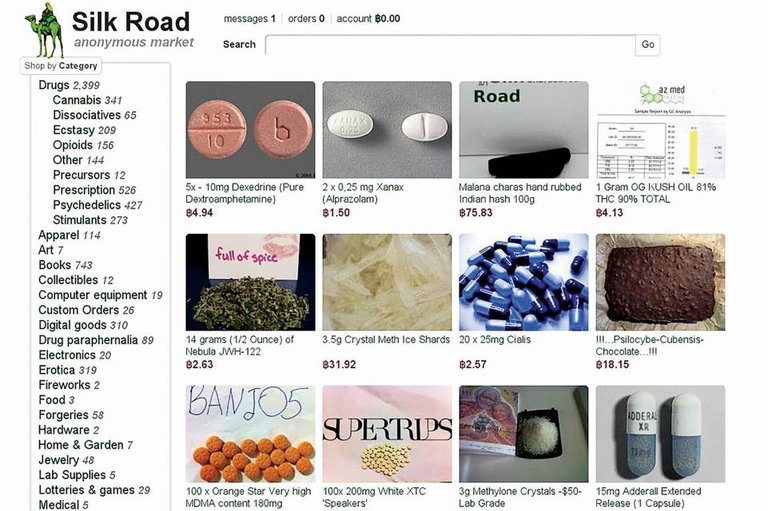Silk Road was founded in February 2011. The name "Silk Road" comes from a historical network of trades routes started during the Han Dynasty (206 BC – 220 AD) between Europe, India, China, and many other countries on the Afro-Eurasian landmass. Silk Road was operated by the pseudonymous "Dread Pirate Roberts" (named after the fictional character from The Princess Bride), who was known for espousing libertarian ideals and criticizing regulation. In June 2011, Gawker published an article about the site which led to "Internet buzz" and an increase in website traffic. Once the site was known publicly, U.S. Senator Charles Schumer asked federal law enforcement authorities to shut it down, including the Drug Enforcement Administration (DEA) and Department of justice. In June 2011, Gawker published an article about the site which led to "Internet buzz" and an increase in website traffic. Once the site was known publicly, U.S. Senator Charles Schumer asked federal law enforcement authorities to shut it down, including the Drug Enforcement Administration (DEA) and Department of Justice. In May 2013, Silk Road was taken down for a short period of time by a sustained DDoS attack. On 23 June 2013, it was first reported that the DEA seized 11.02 bitcoins, then worth $814, which the media suspected was a result of a Silk Road honeypot sting. The FBI has claimed that the real IP address of the Silk Road server was found via data leaked directly from the site's CAPTCHA, but security researchers believe that the PHP login page was manipulated to output its $_SERVER variable and real IP following site maintenance reconfiguration.
In June 2011, Gawker published an article about the site which led to "Internet buzz" and an increase in website traffic. Once the site was known publicly, U.S. Senator Charles Schumer asked federal law enforcement authorities to shut it down, including the Drug Enforcement Administration (DEA) and Department of justice. In June 2011, Gawker published an article about the site which led to "Internet buzz" and an increase in website traffic. Once the site was known publicly, U.S. Senator Charles Schumer asked federal law enforcement authorities to shut it down, including the Drug Enforcement Administration (DEA) and Department of Justice. In May 2013, Silk Road was taken down for a short period of time by a sustained DDoS attack. On 23 June 2013, it was first reported that the DEA seized 11.02 bitcoins, then worth $814, which the media suspected was a result of a Silk Road honeypot sting. The FBI has claimed that the real IP address of the Silk Road server was found via data leaked directly from the site's CAPTCHA, but security researchers believe that the PHP login page was manipulated to output its $_SERVER variable and real IP following site maintenance reconfiguration.
Arrest and trial of Ross Ulbricht
hanks in part to off-duty research conducted by IRS criminal investigator Gary Alford, Ross Ulbricht was alleged by the FBI to be the founder and owner of Silk Road and the person behind the pseudonym "Dread Pirate Roberts" (DPR). He was arrested on 2 October 2013 in San Francisco at 3:15 p.m. PST in Glen Park Library, a branch of the San Francisco Public Library.Ulbricht was indicted on charges of money laundering, computer hacking, conspiracy to traffic narcotics, and attempting to have six people killed. Prosecutors alleged that Ulbricht paid $730,000 to others to commit the murders, although none of the murders actually occurred. Ulbricht ultimately was not prosecuted for any of the alleged murder attempts. The FBI initially seized 26,000 bitcoins from accounts on Silk Road, worth approximately $3.6 million at the time. An FBI spokesperson said that the agency would hold the bitcoins until Ulbricht's trial finished, after which the bitcoins would be liquidated. In October 2013, the FBI reported that it had seized 144,000 bitcoins, worth $28.5 million, and that the bitcoins belonged to Ulbricht.On 27 June 2014, the U.S. Marshals Service sold 29,657 bitcoins in 10 blocks in an online auction, estimated to be worth $18 million at current rates and only about a quarter of the seized bitcoins. Another 144,342 bitcoins were kept which had been found on Ulbricht's computer, roughly $87 million Tim Draper bought the bitcoins at the auction with an estimated worth of $17 million, to lend them to a bitcoin start-up called Vaurum which is working in developing economies of emerging markets.
Ulbricht's trial began on 13 January 2015 in Federal Court in Manhattan. At the start of the trial, Ulbricht admitted to founding the Silk Road website, but claimed to have transferred control of the site to other people soon after he founded it. Ulbricht's lawyers contended that Dread Pirate Roberts was really Mark Karpelès, and that Karpelès set up Ulbricht as a fall guy. However, Judge Katherine B. Forrest ruled that any speculative statements regarding whether Karpelès or anyone else ran Silk Road would not be allowed, and statements already made would be stricken from the record. On 4 February 2015, the jury convicted Ulbricht of seven charges, including charges of engaging in a continuing criminal enterprise, narcotics trafficking, money laundering, and computer hacking. He faced 30 years to life in prison. The government also accused Ulbricht of paying for the murders of at least five people, but there is no evidence that the murders were actually carried out, and the accusations never became formal charges against Ulbricht.
What you could buy in Silk Road ?
In March 2013, the site had 10,000 products for sale by vendors, 70% of which were drugs. In October 2014, there were 13,756 listings for drugs, grouped under the headings stimulants, psychedelics, prescription, precursors, other, opioids, ecstasy, dissociatives, and steroids/PEDs. Fake driver's licenses were also offered for sale. The site's terms of service prohibited the sale of certain items. When the Silk Road marketplace first began the creator and administrators instituted terms of service that prohibited the sale of anything whose purpose was to "harm or defraud". This included child pornography, stolen credit cards, assassinations, and weapons of any type; other darknet markets such as Black Market Reloaded gained user notoriety because they were not as restrictive on these items as the Silk Road incarnations were. There were also legal goods and services for sale, such as apparel, art, books, cigarettes, erotica, jewelery, and writing services. A sister site, called "The Armory", sold weapons (primarily guns) during 2012, but was shut down because of a lack of demand.
There were also legal goods and services for sale, such as apparel, art, books, cigarettes, erotica, jewelery, and writing services. A sister site, called "The Armory", sold weapons (primarily guns) during 2012, but was shut down because of a lack of demand.
source: Wikipedia
Hi! I am a robot. I just upvoted you! I found similar content that readers might be interested in:
https://en.wikipedia.org/wiki/Silk_Road_(marketplace)
I wrote that my source was Wiki.